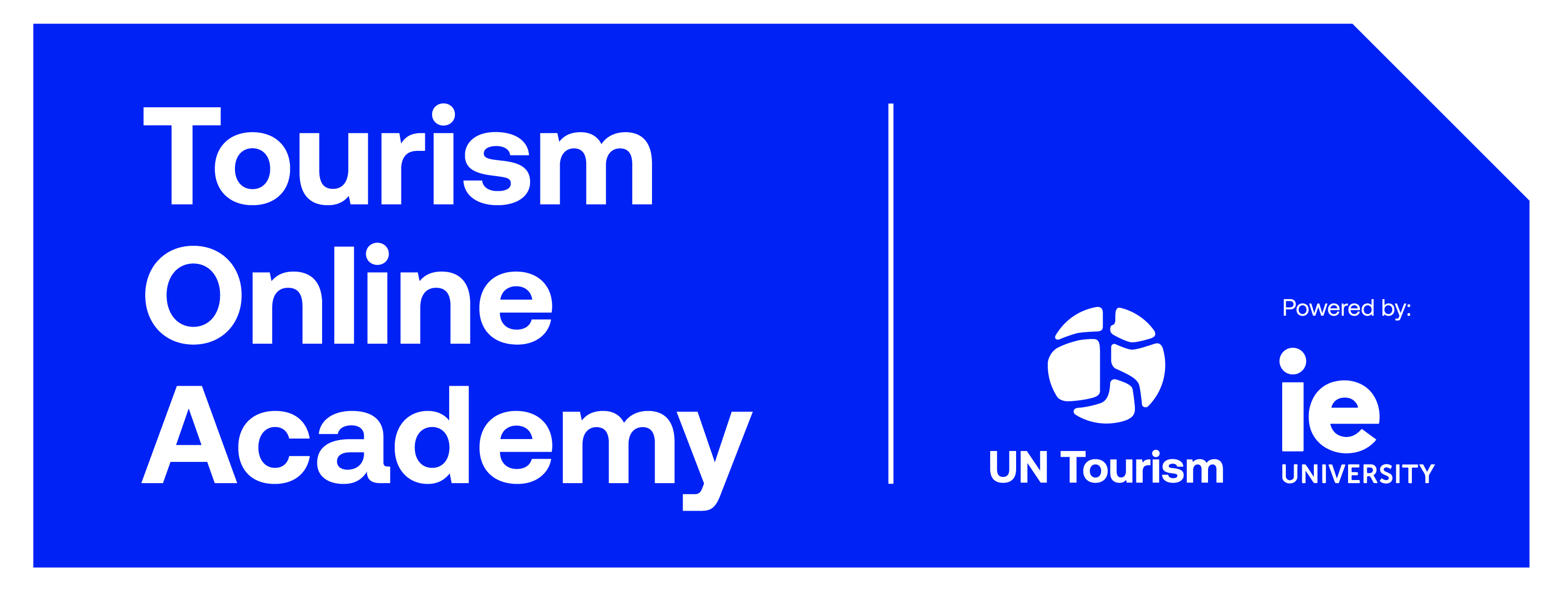

45,000+ students realised their study abroad dream with us. Take the first step today
Meet top uk universities from the comfort of your home, here’s your new year gift, one app for all your, study abroad needs, start your journey, track your progress, grow with the community and so much more.

Verification Code
An OTP has been sent to your registered mobile no. Please verify

Thanks for your comment !
Our team will review it before it's shown to our readers.

- Travel and Tourism /
Tourism Law: Importance, Types, List of Laws

- Updated on
- Feb 18, 2023

The tourism sector is booming more than ever. The fact that the revenue travel and tourism market is anticipated to reach approximately US$ 854.80bn in 2023 contributes to the industry’s expansion. According to a Statista analysis, Revenue is anticipated to rise at a rate of 4.41% per year (CAGR 2023–2027), with a predicted market value of US$1,016.00 billion by 2027. There has always been a need to govern and monitor the patterns and execution of specific laws and regulations which keep things and stakeholders organized given the expanding demand for different parts of the tourism industry. You are on the right page if you are wondering what tourism law is all about. Continue reading to know more about it.
This Blog Includes:
What is tourism law, why do we need a tourism law, environment-related , protection of tourists and health, business and commerce related, related to industries and labour, social and welfare laws, licenses applicable in hotel liquor license organizations, laws related to foreign tourists, laws related to transportation, criminal activities related laws.
Tourism In simple terms, specific rules governing the travel and hospitality industries are referred to as tourism law. The tourism industry is dependent on several factors. The World Tourism Organization launched an information service on tourism legislation on its main website. By 1998, the document centre had amassed more than 2000 pieces of legislation governing the key sectors of travel and tourism in more than 140 nations.
Due to the diversity of tourism, there isn’t a single object that can be referred to as a tourist law. However, laws are often used in the tourism sector to control, authorize, encourage, empower, or outlaw the commercial and recreational activities of both visitors and service providers. Additionally, there are laws recognising the rights of tourists as well as contract laws governing the relationships across industry sectors.
According to Ronaldo A. Kaiser (Travel and Tourism Law, 1994), tourism laws create and define seven basic concepts:
- Travel is a legal right.
- Safe and adequate accommodations must await the traveller.
- Reliable and safe transportation must be readily available.
- All travellers should have access to such accommodations.
- Travel and accommodation costs must be reasonable
- Regulation of the travel and tourism industry is necessary, and
- A redressal mechanism for transgressions of rights and regulations is necessary.
What should all be included by the tourism legislation on the bucket list is the primary issue that arises. In general, tourist law would aim to clearly and unambiguously define the duties and obligations of the various tourism-related sectors towards both the customer and the service providers. The following functional areas can be used to categorize the numerous tourism laws that have been developed or introduced around the world:
- Those related to the protection of tourists
- Those related to border controls,
- Those related to quality services
- Those related to the protection of the environment
- Those related to the conservation of historical sites and monuments
- Those related to economic development
- Those determine the relationship between various segments of the tourism industry.
Nevertheless, more and more areas are being added, such as visitor safety, health and hygiene, and privacy protection, in addition to numerous environmental laws and regulations that have developed over time.
The growth of tourism as a significant industry has highlighted the necessity for a positive working relationship between travellers and service providers. Let’s understand why we need a tourism law.
The goal of travel legislation, according to the World Tourism Organization (UNWTO), is to provide a legal framework for the proper growth and administration of tourism-related activities. Ideally, this will contribute to the protection of cultural traditions as well as natural resources. Additionally, travel businesses and customers are given fundamental legal protection. However, there is a notable lack of enforcement of tourism legislation worldwide, hence, it is understandable that popular nations also struggle to monitor and enforce regulations designed to safeguard tourists.
List of Tourism Laws in India
Tourist laws currently in effect are identical to those that are governed by Indian law and the judiciary. Numerous laws have an effect on or are associated with tourism, both directly and indirectly.
The Indian government has not enacted any tourist legislation or any central tourism legislation. However, in 2002, the National Tourism Policy was formed for the growth and promotion of the tourism industry, and it incorporates fundamental principles for preserving the interests of travellers and tourism firms. But different regulations apply to different parts of tourism. They are listed below.
- The Indian Forest Act
- The Wildlife Protection Act
- The Forest Act
- The Forest Conservation Act
- The Air Prevention and Control of Pollution Act
- The Environment Act
- The National Environment Tribunal Act
- Coastal Zone Regulations
- The Ancient Monuments Act
- Regulations made by the Archaeological Survey of India
- Guidelines issued by the Ministry of Culture
- Indian Penal Code
- Consumer Protection Act
- Prevention of Food Adulteration Act
- The Partnership Act 1932
- Negotiable Instrument Act 1881
- Sales of Goods Act 1930
- Shops and Establishment Act (State Specific)
- Indian Contract Act, 1872
- Health Protection Act (No Smoking Laws) 1996
- The Factories Act 1948
- Payment of Wages Act 1936
- The Minimum Wages Act of 1948
- Equal Remuneration Act of 1976
- Trade Union Act of 1948
- Industrial Dispute Act 1947
- The Employees Provident Fund and Miscellaneous Provisions Act 1952
- Payment of Gratuity Act 1972
- Payment of Bonus Act 1966
- Employees State Insurance Act 1948
- Maternity Benefit Act 1961
- Workmen Compensation Act of 1923
- Apprentices Act 1961
- Grant of Liquor License to Hotels/Restaurants/Clubs for Service Liquor
- Registration of Foreign License
- Foreign Exchange Regulation Acts 1973
- Lodging House License
- Eating House License
- Fire and Safety License
- Swimming Pool License
- Public Amusement License
- Video Games Parlor License
- Foreigner Act of 1946
- Passport Act of 1967
- Laws Related to Transportation
- Baggage Amendment Rules 2006
- Motor Vehicle Act of 1988
- Aircraft Act of 1934
- The Carriage by Air Act 1972
- Indian Penal Code 1860
- Criminal Procedure Code 1973
- Evidence Act 1872
- Narcotic Drugs and Psychotropic Substances Act 1985
- Indian Tobacco Control Act of 2003
- The Immoral Traffic (Prevention) Act, 1956
Ans. There are typically three rules that must be observed when foreigners visit India: The Foreigners Registration Act of 1939 and the Passport (Entry into India) Act of 1920 Moreover, the 1946 Foreigners Act.
Ans. There are three basic forms of tourism: domestic tourism, inbound tourism, and outbound tourism.
Ans. The term “tourism laws” refers to a collection of national, state, and international laws that govern many facets and operations of the travel industry. For instance, travel legislation may include rules governing work, hospitality, or public health.
Many enthusiastic adventurers and those who enjoy travelling and discovering the unexplored beauties of the globe are drawn to the tourism sector. Numerous laws and regulations cover tourism-related enterprises and activities in the majority of countries. There are many different kinds of tourism-related laws that have been passed in numerous nations, covering subjects like tourist protection, border controls, service standards, environmental protection, preservation of historical sites and monuments, regulations of the tourism industry, and the interaction between various travel and tourism industry segments. Follow Leverage Edu for more interesting blogs.
Nidhi Mishra
Nidhi Mishra is an educator who also enjoys writing content. She has earned an undergraduate degree in Mass Communication, B.Ed, and post graduation in Counseling Psychology with a specialization in Organizational Behavior. She has a wide range of expertise creating content for a number of educational niches, including K–12, experiential learning, teachers' and employees' training to name a few.
Leave a Reply Cancel reply
Save my name, email, and website in this browser for the next time I comment.
Contact no. *

Connect With Us
45,000+ students realised their study abroad dream with us. take the first step today..

Resend OTP in

Need help with?
Study abroad.
UK, Canada, US & More
IELTS, GRE, GMAT & More
Scholarship, Loans & Forex
Country Preference
New Zealand
Which English test are you planning to take?
Which academic test are you planning to take.
Not Sure yet
When are you planning to take the exam?
Already booked my exam slot
Within 2 Months
Want to learn about the test
Which Degree do you wish to pursue?
When do you want to start studying abroad.
January 2024
September 2024
What is your budget to study abroad?

How would you describe this article ?
Please rate this article
We would like to hear more.
Have something on your mind?

Make your study abroad dream a reality in January 2022 with
India's Biggest Virtual University Fair

Essex Direct Admission Day
Why attend .

Don't Miss Out
Latest News

Exploring the benefits of Ute rental services for your next project

IATA welcomes abolition of Swedish Aviation Tax

Trevolution Group launches a single loyalty program through all its brands

Turkish Airlines celebrates 20 million Miles&Smiles members

U.S. remains the world’s most powerful Travel & Tourism market

A Celebration of Cultural Tourism Dinner debuts in November in Huntsville, Alabama

New Executive Chef Robert Weland to freshen up F+B at YOTEL Washington DC

2025 Nebraska Passport stop application now open

New General Managers at San Diego’s Bahia Resort, Catamaran Resort

Abra Group expands Michael Swiatek’s role to Chief Strategy & Accessibility Officer

Travel & tourism law: What you need to know in 2021

Tourism and hospitality are intimately linked with rules and regulations. It helps to guarantee that tourists and industry personnel work in a decent and equal environment.
The travel and tourism sector encompasses a wide range of commercial operations such as transportation, accommodation, entertainment, meals, and retail goods. This established area of the American economy accounts for 2.9 % of the gross domestic product (GDP) of the country and openly employs 5.7 million persons. While employment and real output in travel and tourism have grown in recent years, they have not entirely recovered from the 2007-2009 crisis. In this context, Congress will consider reauthorizing or extending the Travel Promotion Act of 2009, which launched a nationwide promotion and marketing push to attract overseas tourists to spend time in the US. In the post-world war II era, the global travel and tourism industry grew to become a significant economic area for many countries. According to the WTTC, global travel and tourism activities directly supported more than 100 million employments in 2012, and this figure is expected to rise to 125 million by 2023. International struggle for tourists is extreme. In 1980, Europe and North America were the world's top tourist destinations, accounting for more than 80% of the worldwide market.
Over the previous several decades, there have been a considerable number of researches created on the specific issue of tourism activities, with an emphasis on the internal movements of tourism. However, legal scientific study on the nature of tourist regulation is still in its early stages. Furthermore, managers of hospitality and tourist-related firms must grasp not just the day-to-day operations of their organization, but also the legal elements of hospitality and tourism management as a whole.
Types of tourism Tourism includes a wide range of activities, as user partialities have shifted from mass tourism, which is characterized by a huge number of persons seeking travel and cultural involvements parallel to their own, to unusual methods of tourism, which emphasize a greater level of contact between host and tourist. The following are some of the main or fast-rising tourist sectors: Heritage and culture tourism, Medical tourism, Conventions, Ecotourism, Agriculture tourism, Space tourism.
What is tourism law and why do we need this? The primary goal of tourism law is to create a regulatory framework for the correct use, development, and control of tourist activities, which is backed by the United Nations World Tourism Organization (UNWTO). Essentially, the existence of the legislation will aid in the preservation of cultural traditions as well as the conservation of natural resources, among other social, political, and economic benefits. Furthermore, passengers and other stakeholders might benefit from fundamental legal protection via transparent processes. Nowadays, well-liked countries in the sector are battling to keep an eye on and implement practical legislation to safeguard tourist activities and ensure advantages derived from them. Tourism law is an exclusive field of laws that combines basic government laws with rules particular to the travel and hospitality industries. The goal of travel laws, according to the American law policy , is to provide a legal framework for the appropriate growth and control of tourism operations. Tourism laws are a mash-up of state, federal, and international laws that govern many parts and activities of the tourism sector. Travel law, for example, may include everything from hospitality community health guidelines to employment. The primary goal of tourism law is to offer an unbiased and equal atmosphere for travelers and travel organizations. For instance, tourism law comes into performance when it comes to products and facilities supplied, as well as circumstances where rules are in place to guarantee restaurants serve safe food and have safe premises.

The travel law The law of travel or travel law refers to the regulations that control both corporate and individual behavior in the travel industry, whereas international law of travel refers to the laws, processes, agreements, and treaties that control international travel. Travel law is a somewhat specialized topic of law that might be particularly intriguing since it may require pursuing a claim in a foreign jurisdiction. It addresses a wide range of difficulties, such as international accident litigation, contractual recovery processes against foreign suppliers, package travel regulations, and international and national regulatory compliance. According to the Lawrina.com online website, the objective is to promote legal principles such as public law, tort law, trust law, employment law, and contract law, as well as to govern international travel law. Contract law, employment law, tourism and hospitality practices, antitrust restrictions, regulatory and agency compliance, and knowledge of particular international agreements and treaties are all included into international travel law to provide a comprehensive set of rules for the travel industry.
Hospitality industry and hospitality law Hotels, casinos, and resorts are examples of hospitality service industries that provide comfort and assistance to strangers, whether commercial or non-commercial. Hospitality also gives rise to the phrases hospital, hospice, and hostel, and these institutions retain a stronger sense of personal care. Hospitality ethics is the study of how people use hospitality.
The corpus of law dealing with the foodservice, travel, and hotel sectors is known as hospitality law. That is, it is the corpus of legislation that governs the specifics of hotels, restaurants, bars, spas, country clubs, meeting and conference planners, and other businesses. Hospitality law encompasses more than one aspect of the law. It covers a wide range of practice areas, including contracts, antitrust, tort law, and others. For instance, every hotel or restaurant must follow safety of food and rules to maintain the pureness of the food served to consumers. Eateries must follow proper food control, and violations can result in a court complaint or a fine. Hotel management is responsible for ensuring that their premises are safe to live in and use in the lodging sector:
- Travel and Tourism law makes and describes seven simple concepts:
- It is a legal right to travel.
- Transportation that is both dependable and safe must be easily available.
- Lodgings should be available to all travelers.
- The traveler must be accommodated in a safe and appropriate manner.
- Travel and lodging expenses must be affordable.
Conclusion Tourism and hospitality are intimately linked with rules and regulations. It helps to guarantee that tourists and industry personnel work in a decent and equal environment. Because it is also necessary for company owners to grasp it in order to prevent a legal complaint or penalties.
Main photo by Edward Lich from Pixabay

Stavros Andriopoulos
- Online casino tourism: The advantages of playing online slots abroad for UK players
- Four compelling reasons to blog while traveling
- From fitness to fun: How electric bikes enhance your outdoor adventures
- Casinos on cruises: A new line of luxury and thrill
Related posts

Joyned appoints Antonella Vecchio to spearhead strategic partnerships in Europe
Previous post, seven practical uses of cotton swabs in a regular hotel, m social debuts in the united states.

Ilma, the newest superyacht from The Ritz-Carlton Yacht Collection, makes its debut

Uganda: Develop Lord’s Resistance Army (LRA) Massacre sites to boost tourism

Peachtree Group promotes Steve Mackenzie to Executive Vice President of Hotel Operations for Hospitality Management Division

UFI announces theme for 91st UFI Global Congress in Cologne

Anantara Hotels & Resorts presents a new world-class historic car concours – Anantara Concorso Roma

Travel Guard to reverse fortunes of the World’s Unluckiest Traveler this Fall

Boom launches world’s first AiPMS to unleash full potential of AI tools with native integrations

easyJet Big Seat Release sees millions of seats on sale for summer 2025

AmaWaterways offers guests a taste of Christmas with early holiday season sailings

Air Serbia carried over 558,000 passengers in August

68th U.S. Secretary of State John Kerry to headline WTTC Global Summit

Knight Frank MENA welcomes Petri Mannila as Partner and Head of Prime Residential, UAE

DoubleTree Suites by Hilton Salt Lake City has a new Executive Chef

Red Dot Representations partners with Plan B Travel And Tourism, Jordan

Bled Strategic Forum 2024: Data is the Key to a sustainable future in tourism

Emirates extends onboard spirits and beer menu with 10 new premium additions

A new opening and new house of Dada: The Home Hotel Zürich

Corporates advised to take flexible approach to accommodation programmes, according to SilverDoor report

Greek Aegean acquires a 13% stake in Volotea

Common mistakes to avoid when filing a car accident claim in Fremont

Why trusted orthopedic specialists near you are essential for optimal recovery

airBaltic’s IPO Preparation is moving forward

Local Law 18 in New York: One year later – implications and challenges for short-term rentals

Top six must-see French castles for tourists

Accor unveils the winners of the 2024 Accor Design Awards x Sofitel at the Maison&Objet Fair

Beth Ardron joins voco Zeal Exeter as Sales and Marketing Director

United Airlines certifies Aeronology for NDC-enabled content and services

UNICEO announces its 2025 Congress

FCM Meetings & Events appoints Henry Jones as the Global Marketing Leader

Aviation Services Management expands operations with new office in Saudi Arabia

RIU Hotels & Resorts presents its innovative chatbot based on artificial intelligence: Claud·IA

Elie Bruyninckx, CEO TUI Western Region, leaves TUI Group after more than 20 years

Southampton Airport welcomes General Aviation community

Copenhagen Optimization makes debut in South America

Sustainability startup Signol raises £2.5m to harness the human factor in emissions-intensive industries

Emirates celebrates South Africa with spectacular, first-ever A380 flypast

Star Alliance member airlines create compelling loyalty offer for frequent flyers in Scandinavia

Ryanair eyes expansion into package holidays, challenging rivals Jet2 and easyJet

Greece’s emerging summer destinations lead the way in tourism growth

IVL increase will hurt New Zealand’s travel and tourism sector, says IATA

Direct bookings lead the way for independent hotels in Europe, says RoomRaccoon

The Shannon Airport Group seeks to expand commercial property footprint

TUI Care Foundation launches conservation initiative to support sustainable development in Mozambique

UN Tourism and FIA reinforce partnership to advance sustainable sports tourism

Embracing travel payments technology: needless or necessity?

VisitScotland appoints new Director of Marketing & Digital

Milan Bergamo Airport expands service to Rome Fiumicino with Aeroitalia

Zela Jet becomes launch customer for Journey Mentor’s Luxury Mentor

What are the pros and cons of using an extra large suitcase

Aer Lingus launches September sale, with two million reduced priced seats

Radisson Hotel Group: Over 130 new signings and openings internationally during HY1 2024

Vaping and airport security: A global guide for travelers

easyJet and Virgin Atlantic partner in pilot exchange programme

Eight moments helping Hilton reach 8,000 hotels and accelerate growth

UN Tourism Global Conference on Wine Tourism heads to Armenia to focus on cultural heritage

Brits turn to trains due to rising car costs finds TransPennine Express survey

Hotel Indigo Jabal Akhdar Resort & Spa debuts in the lush mountains of Oman

Emirates doubles partnership connectivity in a year

G Adventures announced GX speakers: Tony Wheeler and Elizabeth Becker confirmed

Aero starts new scheduled service to Napa from LA

SOTIC 2024 kicks off in Grand Cayman

US: Nationwide hotel workers strike as negotiations falter

Three million passengers on Air Serbia flights since the beginning of the year

SAS officially joins SkyTeam global airlines alliance

Ryanair and Travelfusion partnership takes off further expanding airline’s “Approved OTA” network

EV charging points installed at TransPennine Express North Yorkshire station

TAAG Angola Airlines increase frequencies on regional connections from September 2nd

Turkish Airlines completes financing of two Airbus A350 aircraft with KfW IPEX-Bank

Ethiopian Airlines to add Dhaka, Bangladesh, to its expanding global network

Travel Promoters welcomes Tracey Holmes-Carter

TTS introduces Refund Tracker: Boosting profitability for travel agencies

US hotels celebrated National Hotel Employee Day

The Publisher Hotel welcomes Greg Monjure as General Manager

The Hotel Group and Hogback Development Company to develop Marriott StudioRes in Moses Lake, Washington

IHG survey: 59% of retirees are planning on traveling more during retirement than before

ICAO honours aviation expert John Mettrop with Walter Binaghi Air Navigation Commission Laurel Award

airBaltic celebrates the opening of its Technical Academy


CHTA releases Comprehensive Construction and Investment Benchmarking Report

Embraer celebrates 55th anniversary and 35 years of public listing with event at Brazilian stock market

Record Fall travel costs increase popularity of budget-friendly destinations, finds Squaremouth.com

Positive operating result for Havila Voyages, revenues at 369m. NOK in the 2nd quarter 2024

Viewline Resort Snowmass appoints new General Manager, Gregg Fracassa

Wilderness opens eeimagined Desert Rhino – Damaraland, Namibia

Air Canada helps welcome new Canadians during citizenship ceremony at Calgary’s GlobalFest

Discovering my travel secrets: London’s hidden treasure – The Zetter Clerkenwell

Seatrade Cruise Med announces 2024 state of the Mediterranean cruise industry keynote

Quebec becomes 12th Michelin Guide destination in North America

Old Sod Collection announces launch of Sancho Panza Travel

Holland America Line’s 2026 Alaska cruise season offers front-row seat to the wild wonders of the great land

What constitutes a personal injury in California

Celebrating 25 years of Speciality & Fine Food Fair at Olympia

Five irresistible reasons to choose lake rentals for your next family vacation

Trip.com Group highlights ESG progress and key actions in latest Sustainability Report

Lufthansa Innovation Hub marks 10th anniversary with new venture clienting arm, venture launch and latest startup spin-off

Regenerative Travel unveils speaker lineup and program for 2024 Summit at Climate Week NYC

ICAO: Aviation safety improved despite the challenges of pandemic recovery

Budapest Airport reconnects to Lyon with easyJet

Dunluce Lodge and Seaton House enhance guest experience with Journey

IAPCO and FIEXPO Exhibitions Group partner to elevate professional development in Latin America

Brunfels Hotel opens as part of The Unbound Collection by Hyatt

DXB Live delivers outstanding results in H1, expands regional presence with Riyadh Office

Marriott International and Grupo Fametro sign agreement to bring the Tribute Portfolio brand to Manaus, Amazonas

Custom Travel Solutions launches membership engagement team

RAI Amsterdam ready for the future with two permanent AV partners

Way2VAT boosts revenue through enterprise wins and readies commercial launch of APAI

UFI delegation explores India’s expanding exhibition venues

Electra names B. Marc Allen as Chief Executive Officer

Swedish entrepreneurs launch GotPouches: Bringing premium nicotine Pouches to the U.S. market

Five road trip statistics to know about

Ryanair calls for urgent ATC reform in Europe following closure of Eindhoven Airport

Blue Parallel announces new offerings in Iceland and Panama

IATA: International demand rose 10.1% in July

Appellation welcomes new Chief Culinary Director

Aman appoints Novak Djokovic as Global Wellness Advisor

Ethiopian Airlines’ STEM initiative marks another year of triumph

Lee Rekas is named Area Director of Sales & Marketing of Pier House Resort & Spa

How to make flight time fly by

Popular games in Brazil

Innovative legal strategies in recent wrongful death cases

The importance of hiring a car accident lawyer in new Hyde Park

Neptune Luxury Resort: Supporting the community through local small businesses

Scandinavian luxury travel Curator Up Norway announces executive changes

TSNN and IAEE forge multi-year partnership

Royal Lahaina reopens with new culinary venues and renovated bungalows

WTTC appoints Gaurav Bhatnagar to Regional Vice Chair for India

SAS announces designated Board of Directors

Saudia and Mastercard partner to launch Mastercard’s “Her Voice” Season 3

Oceania Cruises becomes first ultra-premium line to sail out of Tampa

IHG Hotels & Resorts welcomes back InterContinental to Serbia

Lemongrass welcomes seven travel clients to its portfolio

Europalco’s Kuka robot steal the show at the Deloitte IRGAwards

API Hospitality & Residences Forum: Investment, innovation and strategic partnerships

Hospitality veteran Wendy Hoekwater launches Net Growth Marketing, LLC

HOSPA Professional Development sees a 20% increase in learners as hospitality embraces education

The first airport capsule hotel in the Baltics, Kepler Club, has opened at Riga Airport

International SOS announces appointment of Giles Hill as Head of Global Security Services

Global Blue reports strong Q1 FY24/25 financial results with continued substantial revenue growth

Dusit Hotels and Resorts, Generator and Freehand Hotels form strategic partnership

Datalex announces H1 2024 interim results: Revenue in H1 2024 at $13.2m.
What is Tourism Law?
In a nutshell, tourism law refers to either general government regulations or specific travel and hospitality industry laws. What follows is an overview of the laws governing tourism and an explanation of why they are so important to travel consumers.
Why Do We Need Tourism Laws?
According to the United Nations’ World Tourism Organization (UNWTO), the purpose of travel legislation is to provide a regulatory framework for the proper development and management of tourism activities. Ideally, this will aid in the conservation of natural resources and the preservation of cultural traditions. As an added benefit, travel consumers and organizations receive basic legal protection.
- Top Online Hotel and Hospitality Management Degree Programs
However, creating and enforcing tourism laws is notably lax around the world. Certain developing countries have not only a weak travel infrastructure, but offer zero resources or protection to non-local visitors. Understandably, popular countries also struggle to monitor and enforce laws to protect tourists because of the sheer number of visitors and unscrupulous business people who target tourists.
Major Tourism Laws
Tourism laws refer to a combination of state, federal and international laws that regulate various aspects and functions of the travel industry. For instance, travel law may involve anything from hospitality to employment to public health regulations.
In America, there are a few prominent legal regulations, such as seller of travel laws. There are at least five states that maintain seller of travel laws. These states are Iowa, Hawaii, Florida, Nevada, California and Washington. To explain, a seller of travel law means that the state requires anyone who provides travel related services to register with the government. They will be required to display their registration number on their advertising. Consequently, travel consumers in these states are guaranteed a minimum level of recourse if they are the victims of fraud or exploitation. Even though almost all other states do not have official travel regulation agencies, most states have some sort of lax financial security registrations, such as posting bonds with the government.
Passenger Bill of Rights
National airline travel has become more scrutinized because of security concerns and airline companies are streamlining operations and cutting back services. Traveling by air can be a frustrating and time consuming process. However, there are basic airline passenger bill of rights laws that regulate how passengers are treated by airline companies. The most common legislation type is a statute that sets standards for unique travel situations, such as when passengers are stuck in a delayed plane or waiting in an airport for a delayed flight. Some states do not require, but ask that travel agents inform their clients of certain restrictions or public health problems. Many states expect that travel agents will share State Department travel warnings with their clients. Other states have enacted local laws and opened free tourist centers to increase incoming tourism.
Common Tourism Law Problems
There are many common travel related problems that are covered by state regulations. For starters, lost or damaged baggage is a chronic travel issue. This becomes a heated problem when the lost item is something expensive such as artwork or a family heirloom. Thus, every airline will have their own regulations, which of course tends to limit their legal and financial liabilities. Every state has their own laws regarding required consumer disclosure notices. This could involve potential risks and limitations of liability.
The laws governing tourism tend to be disorganized and non-standardized. However, every Tourism Law attempts to protect travel consumers and organizations.

Tourism & Hospitality Law: Introduction to Tourism & Hospitality Law

Introduction to Tourism & Hospitality Law
By Marlysa Razak and Chang Wai Leng
Tourism is a multi-billion dollar industry and Malaysia generated a huge sum of income from tourism. According to the New Straits Times, in the year 2018, tourism generated an income of approximately RM84.1 billion to the Malaysian economy. The industry covers areas such as, inter alia , transportation, accommodation, money exchange, immigration and customs, levy and taxes.
The tourism and hospitality industry represents a broad range of undertakings, including accommodations, restaurants, tourism destinations and attractions, airlines and other transportation.
Like any other industries, tourism has its peculiar regulations and sets of rules. The general laws such as contract and tort apply to the tourism industry, while specific laws such as Tourism Industry Act 1992 , Civil Aviation Act 1969 and its rules and regulations as well as the Innkeepers Act 1952 specifically govern the industry in Malaysia.
Tourism Law is a unique area of law which involves general government regulations and specific travel and hospitality industry rules. According to the United Nations’ World Tourism Organization (UNWTO), the purpose of Tourism Law is to provide a legal and regulatory framework for the development and management of tourism, preservation of cultural traditions, natural resources and facilitate the involvement of the private sector & local communities in tourism development activities.
Tourism Law also reflects not only the rights of international and local tourists, but also the legal responsibilities of inbound-outbound tour operators, travel agents and other significant players in this industry. The main concern in Tourism Law is to provide a fair and equitable environment for travel consumers and organisations. For instance, Tourism Law comes into play when it involves goods and services rendered and situations where laws are there to ensure restaurants are serving food which are safe to consume and premises which are free from danger.
Tourism Law also encompasses laws in movement of people and goods across the World. This includes movements by air, sea, rail and road where each mode of transportation applies different sets of rules and international conventions.
Furthermore, Tourism Law also plays an important role in cases or situations involving terrorism, natural disasters, protests, and disease break-outs where visitors and tourists should be aware of their rights and the safety precaution measures that should or could be taken at the time. Tourism Law provides guides and imposes responsibilities and liabilities to the players in the industry to ensure the safety and the well-being of any tourists or visitors under their care in cases which are out of their control as listed above.
Travel Law are laws which regulate both business and individual behaviour in the travel industry, while International Travel Law refers to ordinances, rules, treaties and agreements which are used to regulate international travel industry. In addition, laws such as common law, contract law, employment law, trust law and tort law govern the international travel law.
Hospitality industry is an industry which involves food service, travel, and lodging industries. Hospitality Law is introduced to regulate hotels, restaurants, bars, country clubs and other public accommodations, so as to provide safety measures within the law to protect the customers.
For example, every restaurant must abide by the food safety and regulations to ensure purity of food being supplied to customers. Restaurants must practice safe food handling and violation can lead to legal suit being initiated or fine being imposed.
On lodging industry, the hotel management has the responsibility to ensure that its buildings are safe to be lived in and used. For example, Section 28 of the Fire Services Act 1988 states that every designated premise including hotels shall require a fire certificate which are to be renewed annually. Section 29 of the Fire Services Act 1988 further states that Fire and Rescue Department shall carry out an annual inspection on the premises to certify that the premises comply with the life safety, fire prevention, fire protection and fire-fighting requirements. For example, the hotel management must ensure that the sign “KELUAR” (Exit) can indicate the escape route. This may inadvertently help to improve the reputation of business as the customers can rest easy by knowing that the place is safe in the event fire breaks out.
Furthermore, safety and security aspects play a very vital role in the hospitality industry. Hotel management shall at all times ensure no uninvited guest in the premise of the hotel and provide adequate measure of protection to their guests from any criminal harm such as robbery and theft of personal belongings arising from their own negligence. On another aspect, it is essential for the hotel management to educate their staffs to avoid or prevent any discrimination made against any guests based on their race and religion. Receptionist and front desk staff shall welcome every guest with open arms because customer service is important in providing a positive image of the hotel to the guests. Providing a safe and crime free staying environment can lead to guest satisfaction resulting in improvement of rapport and good will of the hotel.
Tourism and hospitality industry linked closely with laws and regulations. It helps to ensure both tourists and industry operators come within a fair and equitable environment. It is also very important for industry operators to have the knowledge of it so that they can prevent legal suit being initiated or fine being imposed on them.
- Personal Profile
- See all online law products
- Subscriber Services
- Guided Tour

- Case reports
- International court decisions
- Domestic court decisions
- European court cases
- Arbitral cases
- Commentary and analysis
- Book content
- Encyclopedia entries
- International instruments and materials
- Supporting instruments
- Institutional rules
- Resolutions
- Declarations
- Air law and law of outer space
- Diplomacy and consular relations
- European Union
- History of international law
- Human rights
- Individuals and non-state actors
- International co-operation
- International criminal law
- International economic law
- International environmental law
- International humanitarian law
- International law and international relations
- International organizations
- International procedural law
- International responsibility
- Law of the sea
- Law of treaties
- Relationship between international and domestic law
- Settlement of disputes
- Sources, foundations and principles of international law
- Statehood, jurisdiction of states, organs of states
- Theory of international law
- Use of force, war, peace and neutrality
- Geographic Regions
- Organizations/Institutions
- American Organizations/Institutions
- African Organizations/Institutions
- Asian Organizations/Institutions
- European Organizations/Institutions
- International Organizations/Institutions
- Middle Eastern Organizations/Institutions
- Pacific Rim Organizations/Institutions
Recently viewed (0)
- Save Search
- Share This Facebook LinkedIn Twitter
- Collapse All
- Select Bibliography
- Select Documents
Lorem ipsum dolor sit amet, consectetuer adipiscing elit, sed diam nonummy nibh euismod tincidunt ut laoreet dolore magna aliquam erat volutpat.
Go to full text on:
- United Nations
Treaty Establishing the European Community (as amended by other Treaties) (European Union) [2006] OJ 321 E/37 (Date signed: 25th March 1957)
- External Link
![definition tourism law Max Planck Encyclopedia of Public International Law [MPEPIL]](https://opil.ouplaw.com/view/covers/epil.jpg)
Patrick Vrancken
Published under the auspices of the Max Planck Institute for Comparative Public Law and International Law under the direction of Professor Anne Peters (2021–) and Professor Rüdiger Wolfrum (2004–2020).
- [66.249.64.20|81.177.182.159]
- 81.177.182.159

What Is the Difference Between Tourism Law and Hospitality Law?
By Michael Ferguson
Tourism law and hospitality law are two branches of law that are often used interchangeably, but they have fundamental differences. While both deal with the travel and hospitality industry, they focus on different aspects of it. In this article, we will explore the differences between tourism law and hospitality law.
What is Tourism Law?
Tourism law refers to the legal framework that regulates the activities of tourists and tourism-related businesses. It encompasses a wide range of legal issues such as transportation, accommodation, travel agencies, tour operators, attractions, and events.
Transportation: Transportation is an essential aspect of tourism. Tourism laws cover transportation by air, sea or land. These laws regulate the safety standards for airlines, cruise ships and other forms of transport used by tourists.
Accommodation: The accommodation industry is a crucial part of the tourism sector. Tourism laws govern issues related to hotels, resorts, bed and breakfasts, motels and other types of lodging facilities.
Travel Agencies: Tourism laws also regulate travel agencies that offer travel advice and booking services to tourists.
Tour Operators: Tour operators organize tours for individuals or groups. Tourism laws regulate their operations to ensure that they comply with safety standards and provide quality services.
Attractions: The tourist attraction industry includes natural attractions like beaches or mountains as well as man-made attractions like theme parks or museums. Laws governing these attractions ensure visitor safety while preserving natural resources and cultural heritage sites.
What is Hospitality Law?
Hospitality law refers to the legal framework that regulates businesses involved in providing services to travelers such as hotels, restaurants, bars and other establishments in the hospitality industry. Hospitality laws cover a wide range of legal issues such as liability for accidents on hotel property, food safety regulations for restaurants and bars or liquor licensing laws.
Liability: Hospitality laws cover issues related to liability for accidents on hotel property. For example, if a guest slips and falls in a hotel lobby, the hotel may be liable for damages.
Food Safety: Food safety is an essential aspect of the hospitality industry. Hospitality laws regulate food safety standards for restaurants and bars.
Liquor Licensing: Hospitality laws also regulate liquor licensing. These laws ensure that bars and restaurants comply with regulations regarding the sale of alcoholic beverages.
The Key Differences between Tourism Law and Hospitality Law
The key differences between tourism law and hospitality law are:
Focus: Tourism law focuses on regulating tourism-related activities such as transportation, accommodation, travel agencies, tour operators, attractions and events. Hospitality law focuses on businesses in the hospitality industry such as hotels, restaurants, bars and other establishments that provide services to travelers.
Scope: Tourism laws have a broader scope than hospitality laws. They cover a wide range of legal issues related to tourism activities. Hospitality laws are more specific and focus on legal issues related to businesses in the hospitality industry.
Regulations: Regulations under tourism law emphasize safety standards while preserving natural resources and cultural heritage sites. Regulations under hospitality law focus more on liability for accidents on hotel property or food safety regulations for restaurants.
The Bottom Line
5 related question answers found, what are the similarities and differences of tourism and hospitality, what is difference between tourism and hospitality, what is the difference between hospitality and tourism industry, why do we study legal aspect in tourism and hospitality, what is the difference between tourism and hospitality industry, backpacking - budget travel - business travel - cruise ship - vacation - tourism - resort - cruise - road trip - destination wedding - tourist destination - best places, london - madrid - paris - prague - dubai - barcelona - rome.
© 2024 LuxuryTraveldiva
UN Tourism | Bringing the world closer
Share this content.
- Share this article on facebook
- Share this article on twitter
- Share this article on linkedin
UNWTO Leads Expert Seminar on International Tourism Law
- All Regions
UNWTO has laid the strong foundations needed for countries everywhere to provide greater legal certainty to all operators in the tourism sector. The first seminar on the International Code for the Protection of Tourists (Salamanca, Spain, 30 November – 1 December 2023) welcomed legal experts, academics and public and private sector representatives, to address the achievements of the Code in the two years since its launch as well as to assess the challenges in the years ahead.
A landmark International Code for Tourists
The pandemic highlighted the urgent need for a consistent legal framework for assisting tourists. Even during the biggest crisis in the history of tourism, UNWTO created the landmark legal instrument in record time , following consultation with more than 100 countries including both Member States and non-Members, and from across the private sector. Approved at the 24th UNWTO General Assembly in 2021in just two years, it has been recognized as a key means of restoring confidence in travel and interest in the Code. To date , 22 countries have agreed to adhere to it.
The inaugural legal seminar , organized by UNWTO alongside the University of Salamanca and Paris 1 Panthéon-Sorbonne University, provided a platform for to delve more deeply into the principles and recommendations for assisting international tourists.
Tourism and international law
Over two days, leading experts contributed their insights and inputs during a series of multilateral panel discussions. The panels focused on several of the key challenges, with a focus on supporting the recognition of Tourism Law as an independent branch of the legal system. Highlights included:
- A focus on Tourism Law as a branch of international law, with contributions from leading experts from United Nations Educational, Scientific and Cultural Organization (UNESCO), the International Maritime Organization (IMO), the United Nations Office of Legal Affairs, the Interamerican Development Bank and the Office of International Standards and Legal Affairs.
- The creation of a PhD programme on Tourism Law with the Universities of Salamanca and Paris 1 Panthéon-Sorbonne University, to support advanced studies and education in this specific branch of the legal system.
- As assessment of the Code's potential role in crisis management, drawing on the lessons of the pandemic and counting on the expert insights of leading academics.
- An exploration of what the minimum standard of protection for tourists could be, as well as discussions on contractual issues relating to delivering assistance in emergency situations, and recommendations for best practice around protection of tourists in the context of digital services, emergency prevention as well as assistance and repatriation.
Best practices and opportunities
As well as addressing the key challenges standing in the way of Tourism Law being better defined and integrated into wider national and international legal systems, the Seminar also highlighted the opportunities available through adherence to the Code. This was backed up by presentations of case studies of best practice, including the case of Uruguay, champion of the International Code for the Protection of Tourists, and the efforts made to apply the Code at the national level through the development of specific legislation.
Expert panelists set out the case for "when crisis becomes an opportunity", making clear that the Code can help balance responsibilities between countries, businesses and tourists themselves in emergency situations.
- Participants were presented with the work of the Tourism Law Observatory for Latin America and the Caribbean, jointly created by UNWTO and IDB, as well as from representatives of countries already adhering to the Code, including Costa Rica, Ecuador and Uruguay.
- The first Observatory on Tourism Law for Latin American and the Caribbean is a digital tool at the service of UNWTO Members that will compile all legislation affecting the tourism activity enacted by countries of the Latin America and Caribbean Region. Supported by a network of academic collaborators, the Observatory will serve as a tool for comparability, will issue recommendations and publications on Tourism Law and will support UNWTO Member States in the development of legislation affecting tourism.
Salamanca, Spain
Related links.
- Download the News Release on PDF
- International Code for the Protection of Tourists
- I International Seminar on Tourism Law of the World Tourism Organization
Related Content
Montevideo to host office for the tourism law observato..., un tourism and fia reinforce partnership to advance sus..., in latin america, un tourism drives growth through inve..., un tourism global conference on wine tourism heads to a....
- All courses

INTRODUCTION TO INTERNATIONAL TOURISM AND TRAVEL LAW
Add to cart
Description
Instructors.
Institution
Introduction to International Travel and Tourism Law explores how innovation and technology have reshaped tourism. Understand the legal frameworks guiding the industry, focusing on the digital tourist’s need for personalized, real-time information. This course offers a comprehensive overview of international policies, regulations, and best practices. It’s an invaluable opportunity to build foundational knowledge in tourism management, offering free content access with paid certification options. Equip yourself with the skills to thrive in this data-rich, fast-paced environment.
Important Information:
- Applications open: Anytime
- Priority deadline: Anytime
If you would like to enroll multiple users or need more information about this course, please contact us!

What you'll learn
- ✔ Understand policy strategies and legal regulations in travel and tourism.
- ✔ Analyze international cooperation and best practices in tourism policy.
- ✔ Explore regulations governing transport and tourism markets.
- ✔ Learn about passenger protection and accommodation regulations.
- ✔ Examine new challenges in tourism law, including privacy and digital payments.
Course content
- Governing tourism: UN Tourism and other international organizations.
- Member States’ best practices and international cooperation.
- Global Code of Ethics for Tourism and emergency assistance recommendations.
- International legislative framework for tourist protection.
- Access to transport and tourism markets and competition rules.
- Management of transport and tourism infrastructures.
- International contracts for passenger transport.
- Contracts for the distribution of tourism services and package travel.
- Evolution of international rules on passenger protection.
- Regulation of accommodation and food services.
- From consumer to traveler: package travel contracts and protection instruments.
- Moving toward an international code for tourist protection.
- Privacy and payment systems in the digital era.
- Regulation of adventure, rural, sports, and wellness tourism.
- The sharing economy: Airbnb, Tripadvisor, and Uber.
- Sustainable tourism and the 2030 Agenda.
What our students say about us
To understand the international regulatory considerations in an industry which is truly global, and cannot function (ideally) without complete alignment at a global scale. I am a professional in the travel and tourism industry who does not have any career studies or degrees in policy and law, yet I am very interested in this area. This course allowed me to foray in this direction.
Learning about the global Tourism Law and the fundamental rights of customers and companies is essential. Without becoming a lawyer yourself, it helps to know “the complete picture” specially nowadays with Pandemic, wars and lots of uncertainty in our sector. I could add some specific knowledge to 30 years of tourism from the field experience.
WHO IS THIS PROGRAM DESIGNED FOR?
This program is ideal for professionals and individuals eager to expand their knowledge of international travel and tourism law. Whether you are a public administrator, government official, or entrepreneur in the travel sector, this course provides the legal foundation necessary to add value to your position, improve your institution, or drive your business. Delivered through a 100% online format, the course features short videos, readings, exercises, and assignments in each module, ensuring a comprehensive and engaging learning experience.
Meet our instructors

Alicia Gomez
Legal Counsel, UNWTO
Alicia Gomez has 16 years of experience in the UN, 11 years at UNWTO and is UNWTO´s Legal Counsel since 2017. In this capacity, she supported the process for the development and adoption of UNWTO´s Framework Convention on Tourism Ethics. Among many other projects, she is currently leading the process for the development of an International Code for the Protection of Tourists (ICPT).

Carlos Llorente
Professor of Private and Commercial Law, Spain
Prof. Llorente has been teaching law and is a practicing attorney since 1990. His academic career has spanned through several leading Spanish Universities and he also teaches regularly abroad. Yearly, he offers a course on Private International Law at IE University (Spain). He is an expert on transportation law, international commercial law, comparative law, corporate law and competition law. He is a member of the Spanish Maritime Law Association and of the Advising Council of the Maritime and Transportation Law of the Madrid Bar Association. He also co-chairs the EALG Group, constituted in 1985 and which is today one of the oldest law firm alliances in the world.

Francesco Morandi
Professor of Transport and Tourism Law, Italy (General Coordinator)
Prof. Morandi is a Full Professor of Tourism and Transport Law at the University of Sassari, Italy as well as an Attorney at law, legal consultant, and specialist in tourism and transport law. He has experience in dealing with the most significant legal issues relating to passenger, traveler and tourism protection, as well as the necessity to guarantee economic operators fair conditions and opportunities in the market. He currently assumes the scientific responsibility of some research Groups on different subjects of law, economics and business, and coordinates studies and activities related to transport (air, maritime, rail and road), infrastructure and tourism law, as well as territorial marketing, strategic and socio-economic planning, management of parks and marine protected areas, organization of tourism systems.

Diego A. Benitez
Professor of Tourism Law, Argentina
Prof. Benítez is a Full Professor of Tourism at the Universidad Nacional de Río Negro, Patagonia, Argentina and Attorney at Law, legal advisor for the international touristic project “Corredor de las Misiones Jesuíticas” for the BID/IADB. He has experience as Lecturer in tourism law and head of Sustainable Tourism Law academic group in the areas of adventure tourism law, liability of tour operators and duty of information and has published over 50 specialized contributions on Tourism Law in Argentina, Uruguay, Brazil, Peru, Ecuador, Colombia, Mexico, Spain, Portugal, France and Italy. He is currently the Secretary General of the Iberoamerican Tourism Law Society (Sidetur).
Rule and regulation, tourism
- Living reference work entry
- Later version available View entry history
- First Online: 01 January 2015
- Cite this living reference work entry

- Jian Ming Luo 3 &
- Hanqin Qiu Zhang 4
943 Accesses
In general terms, rules and regulations serve as a governance structure for various sectors. They are developed with different purposes, including economic benefit, social and health improvement, environmental risk reduction, equity and fairness, and political expediency. They are formulated and enforced by a variety of institutions, including local or national governments, state and private bodies, as well as professional organizations such as legal and auditing agencies.
There are extensive multidisciplinary researches on positive and negative impacts of tourism (Goeldner and Ritchie 2012 ; Pearce et al. 1996 ). Tourism can generate many benefits for host communities. At the same time, it can destroy natural environment and habitats and cause harmful social and cultural consequences. This two-sided nature requires its policymakers and business practitioners to maximize the benefits and minimize the costs of tourism. For example, the World Tourism Organization intends to formulate...
This is a preview of subscription content, log in via an institution to check access.
Access this chapter
Institutional subscriptions
Goeldner, C., and J. R. B. Ritchie 2012 Tourism: Principles, Practices, Philosophies. Hoboken, NJ: Wiley.
Google Scholar
Pearce, P., G. Moscardo and G. Ross 1996 Tourism Community Relationships . Oxford: Pergamon.
Porter, M. 1990 The Competitive Advantage of Nations . New York: The Free Press.
UNWTO, 2013, Tourism Legislation and Regulation. Madrid: World Tourism Organization. www2.unwto.org/en/technical-product/tourism-legislation-and-regulation (12 December).
Zhang, H., R. Pine and T. Lam 2005 Tourism and Hotel Development in China: From Political to Economic Success. New York: Haworth.
Download references
Author information
Authors and affiliations.
Faculty of International Tourism and Management, City University of Macau, Avenida Xian Xing Hai, Ed. Golden Dragon Centre, 48 Andar, Macau, China
Jian Ming Luo
School of Hotel & Tourism Management, Hong Kong Polytechnic University, 17 Science Museum Road, TST East, Hong Kong, China
Hanqin Qiu Zhang
You can also search for this author in PubMed Google Scholar
Corresponding author
Correspondence to Jian Ming Luo .
Editor information
Editors and affiliations.
School of Hospitality Leadership, University of Wisconsin-Stout, Menomonie, Wisconsin, USA
Jafar Jafari
School of Hotel and Tourism Management, The Hong Kong Polytechnic University, Hong Kong, Hong Kong SAR
Honggen Xiao
Rights and permissions
Reprints and permissions
Copyright information
© 2014 Springer International Publishing Switzerland
About this entry
Cite this entry.
Luo, J.M., Zhang, H.Q. (2014). Rule and regulation, tourism. In: Jafari, J., Xiao, H. (eds) Encyclopedia of Tourism. Springer, Cham. https://doi.org/10.1007/978-3-319-01669-6_621-1
Download citation
DOI : https://doi.org/10.1007/978-3-319-01669-6_621-1
Received : 23 February 2014
Accepted : 23 February 2014
Published : 16 September 2015
Publisher Name : Springer, Cham
Online ISBN : 978-3-319-01669-6
eBook Packages : Springer Reference Business and Management Reference Module Humanities and Social Sciences Reference Module Business, Economics and Social Sciences
- Publish with us
Policies and ethics
Chapter history
DOI: https://doi.org/10.1007/978-3-319-01669-6_621-2
DOI: https://doi.org/10.1007/978-3-319-01669-6_621-1
- Find a journal
- Track your research

COMMENTS
According to Ronaldo A. Kaiser (Travel and Tourism Law, 1994), tourism laws create and define seven basic concepts: Travel is a legal right. Safe and adequate accommodations must await the traveller. Reliable and safe transportation must be readily available. All travellers should have access to such accommodations.
Tourism laws are a mash-up of state, federal, and international laws that govern many parts and activities of the tourism sector. Travel law, for example, may include everything from hospitality community health guidelines to employment. The primary goal of tourism law is to offer an unbiased and equal atmosphere for travelers and travel ...
Law: Tourism. Tourism law utilizes aspects of contract law, employment issues, tourism and hospitality procedures, antitrust rules, regulatory and agency compliance mechanisms, and substantive areas of aviation, maritime, innkeeper, transportation, and public charter laws. It also spans the areas of tort, criminal, contract, corporate ...
Tourism laws refer to a combination of state, federal and international laws that regulate various aspects and functions of the travel industry. For instance, travel law may involve anything from hospitality to employment to public health regulations. In America, there are a few prominent legal regulations, such as seller of travel laws.
Tourism Law is a unique area of law which involves general government regulations and specific travel and hospitality industry rules. According to the United Nations' World Tourism Organization (UNWTO), the purpose of Tourism Law is to provide a legal and regulatory framework for the development and management of tourism, preservation of cultural traditions, natural resources and facilitate ...
TOURISM AND INTERNATIONAL LAW. The tourism sector is linked to several areas of law, including in many destinations to constitutional law. That is, both tourists and tourism workers have constitutional rights in one way or another. The proper regulation of the various obligations and rights of tourists and tourism workers is necessary in order ...
In prospect, rules and regulations in tourism are associated with nationalization, the role of the public sector, and restrictions of competitions. In an industry where competition is heavily regulated, firms will have to be less concerned with the market and more preoccupied with the regulators. Thus, the impacts of rules and regulations on ...
"We can only restart tourism if we restore trust in travel. People want to feel safe and looked after when they travel. " Zurab Pololikashvili, UN Tourism Secretary-General Introduction. The COVID-19 crisis has revealed the absence of an international legal framework to assist international tourists in emergency situations and a lack of uniformity at the international level regarding tourism ...
Sustainable development — Act of state. Published under the auspices of the Max Planck Institute for Comparative Public Law and International Law under the direction of Professor Anne Peters (2021-) and Professor Rüdiger Wolfrum (2004-2020). 1 Tourism is a very complex phenomenon, which is extremely difficult to define precisely.
Deepen the development of Tourism Law, both in its public and its private law side. Meeting peers and colleagues to increase collaboration and networking; Get to know the Tourism Law Observatory for Latin America and the Caribbean. Identify opportunities to adhere to the Code, its procedure and the legal and political implications.
Tourism law refers to the legal framework that regulates the activities of tourists and tourism-related businesses. It encompasses a wide range of legal issues such as transportation, accommodation, travel agencies, tour operators, attractions, and events. ... Definition of Tourism Industry The tourism industry is all about travel and the ...
Tourism and international law. Over two days, leading experts contributed their insights and inputs during a series of multilateral panel discussions. The panels focused on several of the key challenges, with a focus on supporting the recognition of Tourism Law as an independent branch of the legal system. Highlights included:
Tourism and the 'rule of lawTo. ce [email protected] paper focuses on the principle of the rule of law, in combination with the phenomenon of tourism that is not explicitly recognized by the vast ma. ority of formal constitutions. However, the right to tourism is a universal one, related to the third generation fundamental rights, s.
Tourism law utilizes aspects of contract law, employment issues, tourism and hospitality procedures, antitrust rules, regulatory and agency compliance mechanisms, and substantive areas of aviation, maritime, innkeeper, transportation, and public charter laws. It also spans the areas of tort, criminal, contract, corporate, administrative, and ...
International Code for the Protection of Tourists. The COVID-19 crisis has revealed the absence of an international legal framework to assist international tourists in emergency situations and the lack of uniformity at the international level regarding tourism consumer protection rights. During the crisis, the closure of borders with little ...
TOURISM LAW Although Georgia already has a Law on Tourism and a few other regulatory measures dealing with resorts, spas, free zones, etc., some of them are rather vague—and most of it is out of date. The government wants to place greater emphasis on the role of the private sector in investment, direct production, and employment creation.
with civil and public elements. The former, with the traditional accommodation. contract, with the " ξενι´α" (Greek word for hospitality) and with the liability of. the host; the latter ...
Description. Introduction to International Travel and Tourism Law explores how innovation and technology have reshaped tourism. Understand the legal frameworks guiding the industry, focusing on the digital tourist's need for personalized, real-time information. This course offers a comprehensive overview of international policies, regulations ...
Tourism is a new focal point of China's national economic growth and a pillar industry in national economy (Zhang et al. 2005). In prospect, rules and regulations in tourism are associated with nationalization, the role of the public sector and restrictions of competitions. In an industry where competition is heavily regulated, firms will ...
The main international law documents on issues of international tourism regulations, which formed the basis for international tourism law, were elaborated and adopted within the framework of the ...
The main international law documents on issues of international tourism regulations, which formed the basis for international tourism law, were elaborated and adopted within the framework of the ...
The research is devoted to the analyses of international-legal agreements in the sphere of tourism by underlining its role in a globalized world.
Examples of Tourism Law in a sentence. ETP will perform the day-to-day operations, and until the expiration of ETP's certification under Nicaraguan Tourism Law 306, in compliance with that Law which is binding on the company until September 2017.. ETP manages and maintains the property and the hotel operation, and until the expiration of ETP's certification under Nicaraguan Tourism Law 306 ...